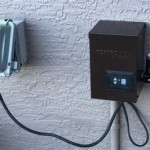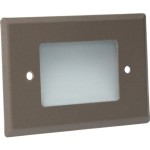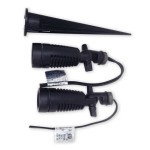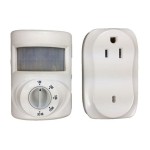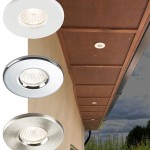Essential Aspects of Outdoor Solar Light Replacement Batteries
Maintaining the functionality of outdoor solar lights requires regular battery replacements. Choosing the right battery for your solar lights and understanding its essential aspects is crucial. Here are key factors to consider:
Battery Type:
Solar lights typically use rechargeable batteries like Ni-MH (Nickel-Metal Hydride) or Li-ion (Lithium-ion). Ni-MH batteries are durable and can withstand extreme temperatures, while Li-ion batteries offer higher energy density and longer lifespans but may be more expensive.
Battery Capacity:
The battery capacity, measured in milliamp-hours (mAh), indicates how long a battery can power the light. A higher capacity battery will provide longer illumination. Choose a battery capacity that matches the power requirements of your solar lights to ensure optimal performance.
Battery Voltage:
Solar lights operate at specific voltages, usually 1.2V or 3.2V. Ensure the replacement battery matches the voltage of your solar lights to avoid damage or poor performance. Mismatched voltages can lead to overcharging or undercharging, affecting battery lifespan.
Replaceable Batteries vs. Non-Replaceable Batteries:
Some solar lights feature built-in, non-replaceable batteries, while others allow for battery replacements. Replaceable batteries offer the convenience of extending the light's lifespan by simply replacing the battery when needed. Non-replaceable batteries require the entire light to be replaced, which can be more costly.
Cold Temperature Performance:
For outdoor solar lights, consider batteries designed for cold temperature operation. Ni-MH batteries typically perform better in cold weather than Li-ion batteries, retaining more capacity at lower temperatures. If your solar lights are exposed to freezing temperatures, choose batteries specifically rated for cold conditions.
Battery Lifespan:
Battery lifespan is influenced by factors such as battery quality, usage patterns, and environmental conditions. High-quality batteries and proper charging practices can extend battery lifespan. Generally, Ni-MH batteries have a lifespan of 2-3 years, while Li-ion batteries can last up to 5 years or more.
Environmental Considerations:
Choose solar light batteries that are environmentally friendly. Look for batteries that are recyclable or contain low levels of toxic materials. Proper disposal of used batteries is also important to prevent environmental contamination.
By understanding these essential aspects, you can select the appropriate Outdoor Solar Light Replacement Battery. Choose high-quality batteries that meet the specifications of your solar lights, consider the cold temperature performance if necessary, and remember to properly dispose of used batteries. With the right battery, your outdoor solar lights will continue to provide illumination for years to come.

Top Tips For Your Garden Solar Light Batteries Buy A Battery

Replacement Batteries For Outdoor Solar Lights Remy Battery

Alpine Corporation Aa Ni Cd Replacement Rechargeable Batteries For Solar Powered Garden Lights Set Of 4 Sla300 The Home Depot

Do Solar Garden Lights Need Batteries Outdoorlights The

Solar Battery Box Garden Warm White Led Replacement Top Light Bu

Replacement Round Solar Panel Light For Lanterns Garden Outdoor Lighting Decorations

Replacement Batteries For Outdoor Solar Lights Remy Battery

Solar Lamps For Outside Garden Plug In Light Flame Effect Ip44 Battery Lights Plastic Silver 1x Led 3000k Dxh 10x58cm Etc Furniture Technology Household All From One Source

Solar Street Light 10000lumens Led Power With Pir Motion Sensor Dusk To Dawn Outdoor Lighting For Park Garden Courtyard Walkway Ip66 Waterproof Lamp Pole Com

Smart Garden Replacement Battery Light Box Pack For Solar Lights Round Lanterns Buyaparcel
Related Posts

